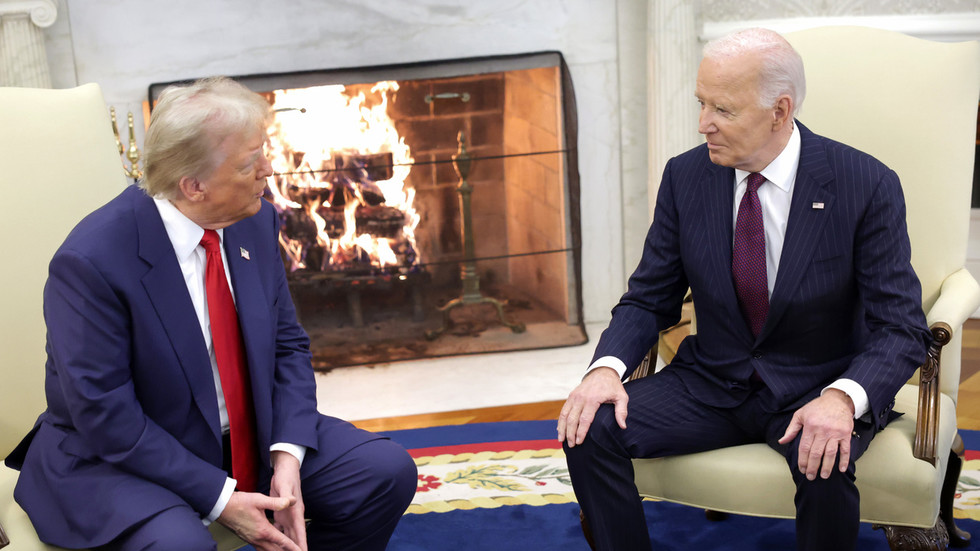In a noteworthy but brief exchange during the recent Thanksgiving holiday, President Joe Biden and President-elect Donald Trump reportedly spoke over the phone. This conversation, their first since Trump’s visit to the White House on November 13, was characterized as a cordial gesture, with Trump reaching out to wish Biden a happy Thanksgiving, according to NBC’s sources. The content of their dialogue was stated to be “not substantive.” This interaction comes in the wake of significant political tension, especially following Biden’s decision earlier in the year to withdraw from the race for a second term after a tumultuous debate against Trump. In the subsequent election, Trump decisively defeated Democratic Vice President Kamala Harris, highlighting the political shifts that characterized this election cycle.
The historical context of their interactions reveals a stark juxtaposition between their campaigns and subsequent conduct. Following the election, Trump and Biden met at the White House to discuss the transition of power, where they shared a handshake in front of cameras—a relative departure from the heated rivalry that had defined their paths. Biden expressed a hopeful outlook for a “peaceful transition,” to which the president-elect responded affirmatively, asserting his commitment to ensuring a smooth transition. This moment of civility stood in contrast to their previous exchanges characterized by severe accusations and mutual disdain that had intensified over the years.
The animosity between the two leaders has deep roots, reflected in their public rhetoric and actions. Both parties have openly condemned each other for toxic language and division, with Trump denouncing Biden as an “enemy of the state,” questioning his international respect, and maligning his competence. Conversely, Biden has not held back from condemning Trump supporters as “garbage,” and has associated Trump’s divisive politics with threats to democracy, even drawing parallels with the rhetoric used in “Nazi Germany.” This atmosphere of hostility culminated in Trump’s refusal to invite Biden to the White House following the 2020 election, a break from tradition that stoked further tensions between the two camps, leading to Trump’s unprecedented decision to skip Biden’s inauguration.
The upcoming inauguration of Trump is set for January 20, 2024, amidst speculation about how the relationship between the two leaders may evolve. Despite the electoral contest, Biden had previously indicated a willingness to attend the inauguration, indicative of his commitment to traditional democratic processes, irrespective of party lines. The past year’s political landscape has been marred by a series of divisive events, and as they move closer to the inauguration, questions about how to mend or exacerbate existing rifts remain critical to observers of American politics.
In addition to the political backdrop, the Thanksgiving holiday itself provided a moment for Biden and his family to step away from the pressures of the White House. Spending time in Nantucket, Massachusetts, Biden celebrated the holiday with family, including his son Hunter and daughter Ashley. Notably, Biden recently issued a controversial pardon to Hunter, absolving him of federal crimes and extending it to cover any actions since 2014, a move that has sparked backlash from both Trump and some factions within his own party. This pardon underscores the complexities of familial ties entwined with political maneuvering, reflecting how personal and political narratives intersect within the Biden administration.
As the political theater unfolds, the conversations and transactions between Biden and Trump signal not just the personal dynamics at play, but also the broader implications for American democracy and governance. Both leaders embody contrasting visions of America, and their interactions—both cordial and contentious—reveal the delicate balance between civility and partisanship. As they navigate this new phase in American political life, the outcomes of their actions and exchanges will undoubtedly shape public perception, party identity, and the direction of the country in the years to come.

